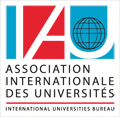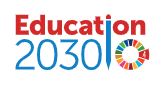Follow-up Programme of the UNESCO Global Action Programme for Education for Sustainable Development adopted
News / Actualités

Follow-up Programme of the UNESCO Global Action Programme for Education for Sustainable Development adopted
The Programme and External Relations Commission of the 206th session of UNESCO's Executive Board has reviewed and adopted the proposed future plan for Education for Sustainable Development (ESD) for the period of 2020-2030 - "ESD for 2030".
1. UNESCO has been the lead United Nations agency on Education for Sustainable Development (ESD) since the United Nations Decade of Education for Sustainable Development (2005-2014). The Global Action Programme (GAP) on ESD, which started in 2015 with the objective of scaling up action on ESD, will come to an end in 2019. Consequently, by 204 EX/Decision 28, the Executive Board requested the Director-General to develop a proposal for a draft framework for the implementation of ESD beyond 2019, with a view to submitting it to the 40th session of the General Conference for approval and the 74th session of the United Nations General Assembly for acknowledgment.
2. The present document provides a concise overview of the proposed framework, entitled Education for Sustainable Development: Towards achieving the SDGs (ESD for 2030), and covers the period 2020-2030, including its rationale and its implementation modalities. The full text of “ESDfor 2030” is available in the annex. It was developed through broad consultations with various stakeholders from 2016 to 2018. This includes the annual reviews of the implementation of the GAP; four brainstorming symposia with more than 250 experts and stakeholders held around the world; a consultation meeting with GAP Key Partners in April 2018 in Costa Rica; a Technical Consultation Meeting with over 270 government representatives and experts from 116 Member States in July 2018 in Bangkok, Thailand; consultations with United Nations agencies and other international players, as well as an online public consultation with a wide range of stakeholders.
3. ESD for 2030 builds upon the lessons learned and experiences of the current phase of the GAP (2015-2019). The results of the GAP Key Partner Survey (2015-2018), available on UNESCO’s website,1 confirm that the programme made good progress, exceeding the targets for 2019 in four out of its five Priority Action Areas (policy, education and training, educators and communities). The GAP Key Partner Network of 95 stakeholders has served as a forum for peer exchange and support to make this possible. Notably, it is projected that through this network 26 million learners in formal and non-formal settings have been exposed to ESD curricula and special projects designed to instil knowledge and inspire action in their communities. Furthermore, it is estimated that partners have supported the training of two million educators on ESD and adapted material and resources to meet their needs.
4. However, the need for more inter-linkages between partners working for different Priority Action Areas has been identified, particularly through the establishment of regional networks for more leverage. The review of GAP mid-term implementation in 2017 revealed that there had been insufficient visibility of the engagement made by governments. There is also a growing demand for fundraising, in particular to invest in research, and monitoring and evaluation of ESD activities.
Read the full document
https://unesdoc.unesco.org/ark:/48223/pf0000366797.locale=en

 INGO with UNESCO Associate Status / ECOSOC Consutative Status
INGO with UNESCO Associate Status / ECOSOC Consutative Status